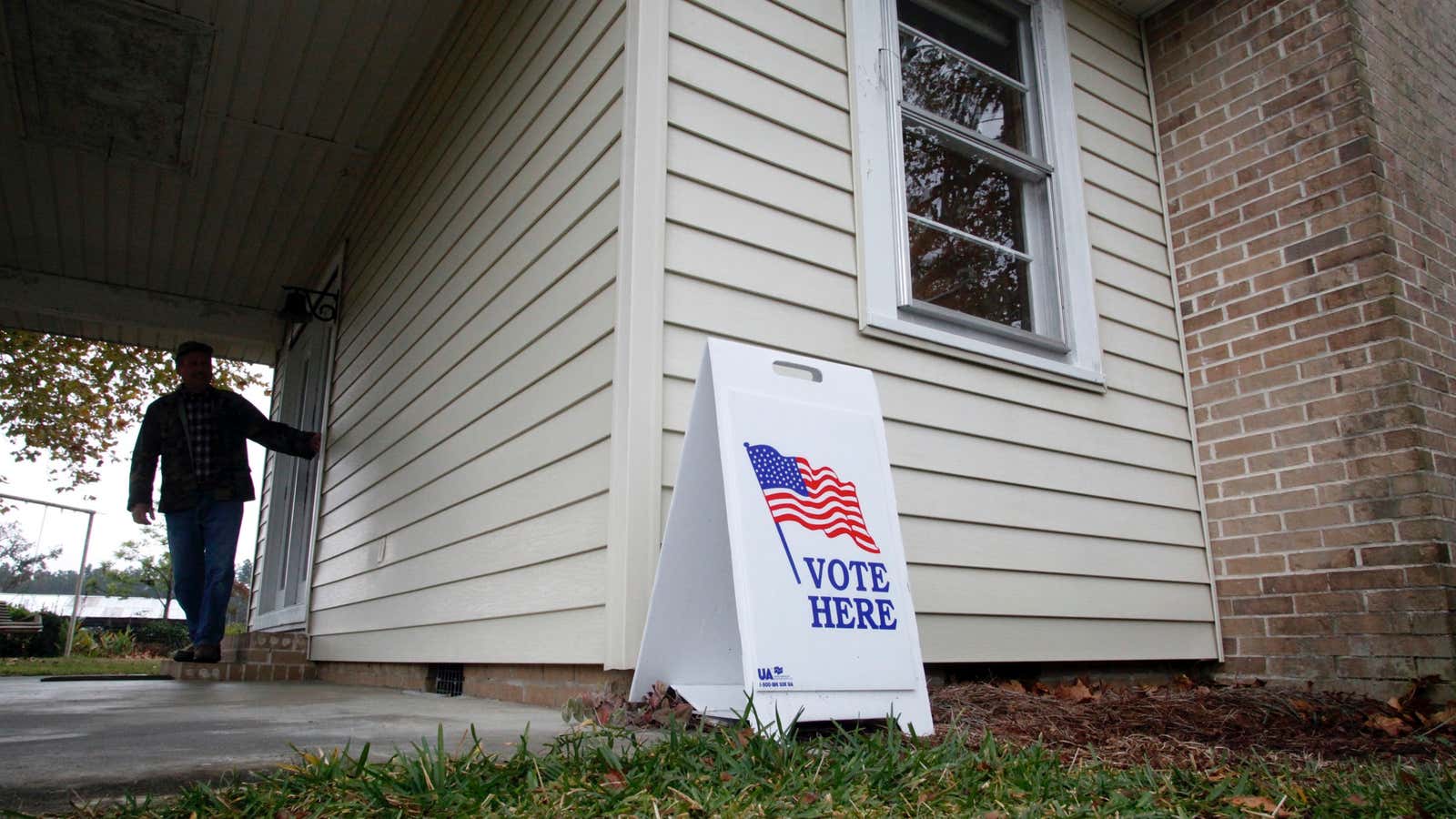Americans around the country went to the polls on Tuesday night (Nov. 3) to vote in local and state elections that would decide everything from state governors and town mayors to measures to limit Airbnb rentals in their hometowns. While votes are still being counted in some contests, it is hard not to read a pattern in the early results—so-called “liberal” issues appeared to have been crushed in some of the most-watched elections across the country.
- In Texas, the Houston Equal Rights Ordinance that guaranteed equal rights to gay, lesbian, and transgender people—as well as banned discrimination based on race, religion, sex, and 10 other classes already protected by federal law—was struck down, with 61% of voters opposing and 39% in favor, with 95% of votes reported. Opponents of the measure, first passed by the city council in May 2014, said it would allow men dressed as women to enter women’s bathrooms.
- Ohio’s marijuana legalization amendment that would have made recreational, non-criminal use legal was rejected by about 65% of voters. The controversial amendment was considered “deeply flawed” by pro-marijuana activists, because it would have put cultivation of the crop in the hands of a monopoly.
- Portland, Maine’s proposal to set minimum wage at $15 per hour, twice the state minimum, was rejected by nearly 58% of voters. The city’s small business owners lobbied against the increase, calling it “too far, too fast,” although the city’s minimum wage will still be raised to $10.10 per hour on Jan. 1, 2016.
- In San Francisco, voters struck down a proposal that would have trimmed the number of days a home owner or renter could rent their property through Airbnb. Housing rights activists argue that the growing number of apartments rented as Airbnb units exacerbates the city’s affordable housing crisis.
- In the closely watched Kentucky state governor’s race, businessman Matt Bevin became just the second Republican to govern the state in four decades. Bevin ran on a platform to repeal Medicaid expansion that would leave hundreds of thousands uninsured, and on his support for a county clerk who refused to grant marriage licenses to same-sex couples.
